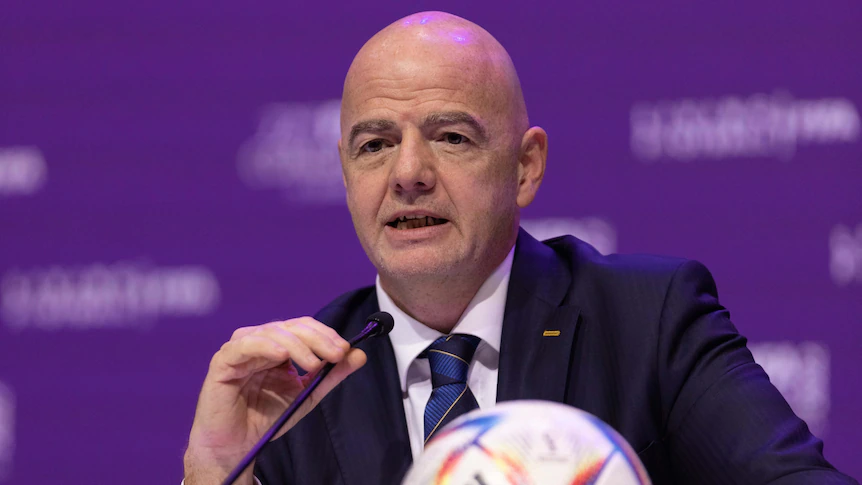Infantino did not respond to a question on whether FIFA will provide support for the families of migrant workers who died while working on the World Cup’s stadiums.
FIFA President Gianni Infantino says that migrant workers in Qatar gain “dignity and pride” from their hard work while building the World Cup infrastructure.
Workers, Infantino stated, would be happy to be offered the opportunity to build stadiums for this year’s tournament in the Gulf nation, rather than being given charity.
Infantino made the remarks after being asked at the Milken Institute’s Global Conference in Los Angeles if FIFA would use its profits to make “any sort of commitment” to support families of workers who died while working in Qatar.
When responding to MSNBC anchor Stephanie Ruhle on stage, the FIFA president did not directly address the question. He instead highlighted the introduction of a minimum wage and labour reforms in the gulf country.
Additionally, Infantino did not explicitly address Ruhle’s allegation that 6,500 workers died constructing infrastructure for the 2022 World Cup, which was refuted by Qatar after The Guardian reported it. Three individuals have died on the stadium construction grounds, according to Infantino.
“Now 6,000 might have died in other works and so on and of course FIFA is not the police of the world or responsible for everything that happens around the world. But thanks to FIFA, thanks to football we have been able to address the status of all the 1.5 million workers, working in Qatar.”
The 2022 World Cup has contributed to “positive social change” in the country, according to Infantino, who admitted that “these controversies have certainly overshadowed the preparation.”
Labour issues and reforms in Qatar
Over the past few years, Qatar has seen a number of labour reforms. In 2021, the country introduced the region’s first ever non-discriminatory minimum wage law.
Additionally, Qatar approved two key laws in August 2020 to eliminate barriers on migrant workers leaving the country and changing jobs without permission from their employers.
The Amir removed limitations on migrant workers changing jobs without permission from their employers and established a monthly minimum wage of 1,000 QAR, including basic living allowances for select workers.
Under it, employers are now obliged to pay their workers allowances of 300 QAR for food, 500 QAR for housing, and a minimum monthly basic wage of 1,000 QAR.
Employers who fail to comply with the minimum wage law will face a one-year jail sentence and a 10,000 QAR fine.
The Ministry of Labour also launched a new platform for workers’ complaints in May 2021 to enable employees to submit public violations of the labour law.
The new laws have the potential to strike at the core of the Kafala system, which continues to link migrant workers to their employers, if effectively implemented. However, there are numerous cases of employers not abiding by the reforms.
Employees told Amnesty International that changing employment still comes with major obstacles and opposition from dissatisfied bosses.
More than 2,000 labour complaints were filed with the Ministry of Labour against firms and institutions across the country in December.
In recent months, there has been a slew of new complaints about working hours, compensation, and a variety of other issues.
Qatar’s Minister of Labour Ali Al Marri recently stated that the legislative updates and improvements in the labour sector in recent years have been ‘continuous and sustainable’ and will continue after the World Cup.







